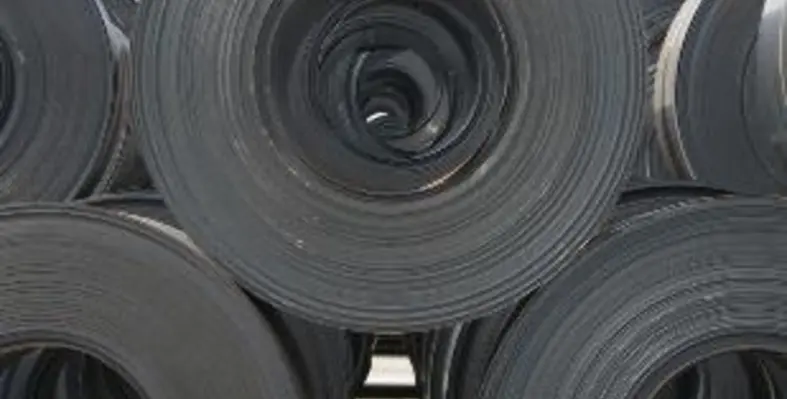From massive infrastructure developments to middle class housing, construction has led to an increased demand for steel, writes Mwangi Mumero
Data from the Kenya National Bureau of Statistics indicates that steel imports have grown by more than 100 per cent in the past five years from US$263 million to $538 million.
This has been driven by increased investment in the construction sector and infrastructure projects with the value of building plans approved rising by 18 per cent over the same five-year period.
Overall expenditure on road projects rose from $850 million during the 2009/2010 fiscal year to $1.13 billion in 2010/2011.
Steel companies have also benefitted from the wider East African Community (EAC) and the Common Market for Eastern and Southern Africa (COMESA) markets.
“Statistics show that metal and steel products are currently Kenya’s largest manufactured goods exported within the COMESA and the EAC”, said Betty Maina, chief executive officer at the Kenya Association of Manufacturers.
Steel from Kenyan companies is being bought by Rwanda, Tanzania, Uganda and Democratic Republic of Congo.
The major Kenyan steel dealers include Athi River Steel Ltd, Brollo Kenya Ltd, Devki Steel Mills Ltd, Accurate Steel Mills Ltd, Elgo Steel Fabricators Ltd, Iron Africa Ltd and Simba Products Ltd.
Kenya's annual demand for steel is estimated at about 480,000 tonnes to 600,000 tonnes.
Most of the iron to make the steel is imported from South Africa, Japan, India and China.
The local steel sector makes a variety of products from local and imported steel scrap, steel billets and hot rolled coils.
The country imports and exports steel billets, coils, wire rods, steel plates, sheets and pig iron.
Most of the steel products end up being sold on the domestic market, however, mainly by the construction industry.
“We have noted an increased demand for steel rods, sheets and other products in the last five years,” said Harrison Mungai, a hardware shop dealer in Kitengela, on the outskirts of Nairobi, and one of the areas currently experiencing huge housing investments. “Most have ended up in the fast growing middle class housing in the nearby estates.”
Dealers note that over the last two years, the price of the twisted bars – an integral part of beams used to make reinforcement frames for tall buildings – has increased by 25 per cent from $1.2 to $1.5 a kilo.
With these price hikes, the cost of steel for a three storey building – requiring five tonnes of steel – has risen from $5,250 to $7,500, a 43 per cent rise.
Rising demand for steel products has also led to huge investments in the sector as firms position themselves to profit from the burgeoning local and regional markets.
Recently, the government-owned Numerical Machining Complex announced plans to set up a steel plant at the cost of $62.5 million.
The steel plant will be set up at the Athi River and will also support automation of the steel melting process for mass production and establish a metal research laboratory.
The firm plans to expand melting capacity to 21 tonnes per hour. When fully automated, its casting and moulding capacity will produce 15 tons per hour, translating to 100,000 tonnes annually.
Officials from Posco Steel, a Korean company and the third biggest global steel manufacturer, say the firm plans to establish a $3.75 billion investment steel plant in the country.
A local player, Devki Steel Mills has also announced plans to set up a $175 million plant in Kitui to mine and process iron ore deposits in the county in what could result to a major source of steel as well as employment to the local youth.
Iron ore also exists in Taita, Meru, Kilifi and Samia regions of Kenya, prompting the government to encourage industrialists to tap into this readily available raw material.
On a smaller scale, a Mombasa family-based business has invested $16.25 million in a new steel mill. The Mazeras-based firm has the capacity to produce 84,000 tonnes of steel per annum.
Steel firms have however lamented the high cost of transport, power and petroleum products.
“Government needs to put in place proactive measures to reduce cost of power to make the steel industry competitive,” said Kennedy Muga, a director with steel dealer, Process Express. “The government also needs to support incubation in export promotion zones.”
The Mombasa-based firm plans to expand to Uganda, Rwanda, Burundi, DRC, Zambia and Angola. It is also working with Kenya’s Export Promotion Zones to enter the lucrative South Sudan market.
To encourage the sector’s growth, the Ministry of Industrialisation, has allowed investors to set up their own mini thermal electricity generation plants to supplement demand.
The East African Community secretariat also banned the exportation of scrap metal meaning accessible to cheaper raw materials.
Global demand for steel is expected to surge in the next two years, buoyed by increased consumption from key emerging markets such as China, India, Brazil and Russia, which will increase the prices of imported steel and steel products even further.
Mwangi Mumero












